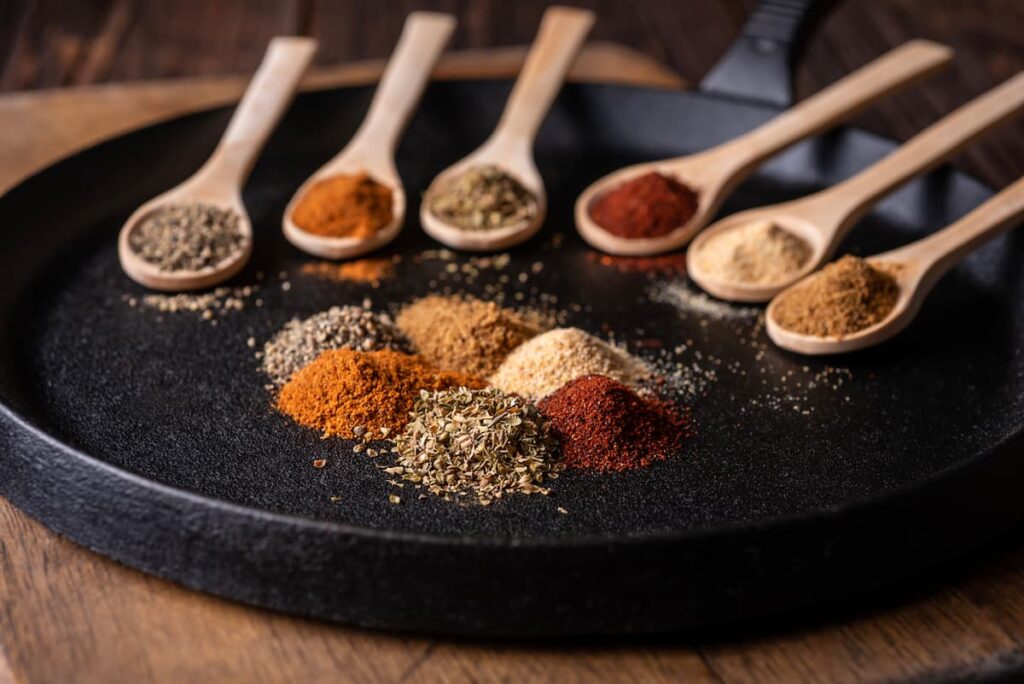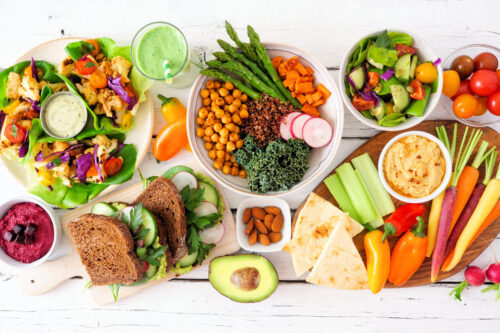Are There Any Spices to Avoid with Diabetes?

People with diabetes must be careful with their meals, including their preparation, and the choice of proper seasonings to complete their meals.
When a person with diabetes makes unhealthy food choices, they can increase their blood sugar levels. But are there spices to avoid if you are someone with diabetes?
Keep reading to learn more.
What Are the Spices to Avoid with Diabetes?
The quick answer is none because, with moderation, a person with diabetes can have any spices or herbs they want. Indeed, some spices and herbs can actively improve your health and diabetic symptoms.
If there’s any seasoning to avoid, it would be something with excess sugar, like ketchup or pre-prepared salad dressing (which contains a surprising amount of sugar). But even then, if you consider it a treat and not a standard, you’ll be alright (unless your doctor says otherwise).
Does Seasoning Affect Blood Sugar?
Seasoning doesn’t really affect blood sugar, though certain seasonings can help improve your overall health. Instead, your focus should be on the larger meal ingredients because they will affect your blood sugar level.
What Seasonings Are Bad for People with Diabetes?
Most seasonings aren’t bad for people with diabetes as long as they’re consumed in moderation. However, overly sugared foods like ketchup, salad dressing, or fruit juice should be used sparingly because they can boost blood sugar levels quickly.
Answers to Questions: Spices People with Diabetes Can Have
People may think many spices and seasonings are poor choices for people with diabetes. This section will highlight some of the most common misconceptions about what people with diabetes can have.
Are Salt and Pepper Bad for People with Diabetes?
No, salt and pepper aren’t bad for people with diabetes; neither negatively affects blood sugar levels. However, salt consumption should be closely monitored because excess salt harms your health in other ways. The average American eats 20 times more salt than their daily requirement.
Pepper, on the other hand, should be incorporated into any diabetic diet because it contains antioxidants that minimize damage to the body due to oxidative stress. A study on diabetic rats showed that black pepper reduced hyperglycemia and increased serum insulin levels.
Is Garlic OK for People with Diabetes?
Absolutely, garlic is good for people with diabetes! It can help maintain blood sugar levels because it has hypolipidemic and anti-inflammatory properties. One study found that garlic improves blood sugar control in 24 weeks in those who have type 2 diabetes and may potentially provide some insulin resistance relief.
Is Cinnamon Good for People with Diabetes?
Yes, cinnamon is suitable for a person with diabetes. One study showed that cinnamon reduced fasting blood sugar levels and insulin resistance.
However, if you take blood thinners, talk to your doctor before adding cinnamon to your diet. Cinnamon has blood clotting properties that can interfere with your medication.
Can People with Diabetes Take Ginger?
Yes, people with diabetes can consume ginger as part of their meals. Still, you must consult your doctor regarding ginger in supplement form. Ginger has anti-diabetic and anti-oxidative properties that help control blood sugar levels and improve insulin sensitivity.
One study found that in type 2 diabetes, ginger can reduce fasting blood sugar levels and insulin resistance. Be careful not to have too much at once, as ginger can produce heartburn or an upset stomach.
Why Can’t People with Diabetes Take Turmeric?
People with diabetes can’t take turmeric supplements without discussing it with their doctor. But you can add turmeric to your diet to take advantage of its anti-diabetic properties.
Turmeric has curcumin in it, and a study found that curcumin can reduce fasting blood sugar levels thanks to its ability to suppress oxidative stress.
Is Mustard OK for People with Diabetes?
Yes, mustard is fine for people with diabetes and should be included in their diet. Mustard can reduce blood sugar levels by increasing insulin receptor signaling—though we’re talking about real mustard, not the sugary, premade stuff.
Don’t Be Afraid to Spice Up Your Meals
While people with diabetes should be diligent with what they eat, that doesn’t mean the meals must be bland. With moderation, there are no spices to avoid with diabetes, especially when they’re in their natural state instead of sugary premade forms.
Looking for ways to bring more taste diversity to your meals? Dr. McDougall offers a wide variety of recipes covering every type of food category, and they’re all 100% plant-based.
Recommended Articles

The 10 Most Healthful Packaged Foods

How to Start a Plant-Based Diet







